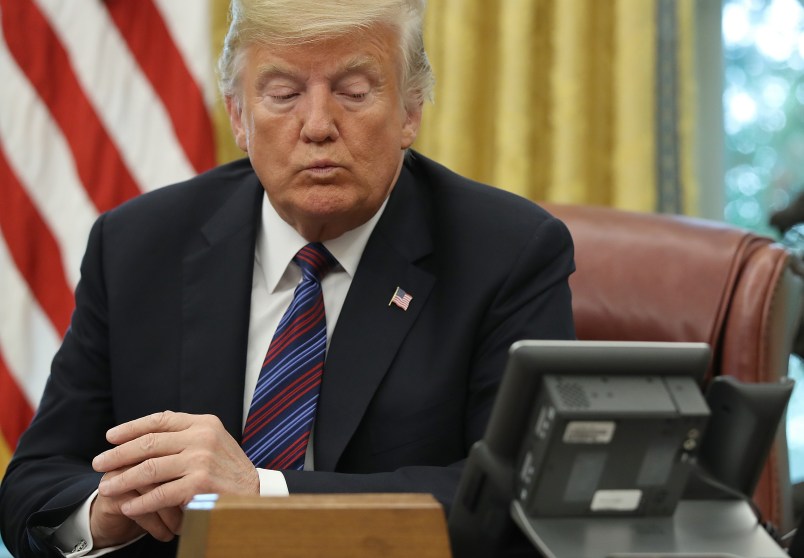I want to return to a point I made indirectly yesterday. I want to make it more directly. We’re heading toward a genuine constitutional crisis with the President. “Constitutional crisis” is sort of a meaningless word. But let me try to give it more specific meaning: a threat to the rule of law and adherence to the constitution which the constitution itself does not provide a ready solution to, not under present political circumstances.
The President is getting rid of staunch right-wing ideologues because they will not allow him — whatever their other faults — to prevent the rule of law from applying to him and his family. To use an analogy, they’ll help him with his misdemeanors but so far at least not with his felonies. That’s what the laying the groundwork to fire Jeff Sessions is about. That’s what the firing of Don McGahn is about. When your boss announces you are leaving and you didn’t know you were leaving, that’s called being fired. Even the inability to state this obvious fact is a symptom of a larger problem: since there’s no apparent solution to the President’s push to make himself invulnerable to the law, we prefer not to say what is happening.
We don’t know the precise order of events. But the President is apparently intent on pardoning Paul Manafort — something that even by Trumpian standards has no real justification other than obstructing justice — and either ending Robert Mueller’s investigation or putting it under the control of a loyalist who will defang it.
This is happening before our eyes. There’s as yet no apparent path by which any of this will be prevented. The one partial path, which is political in nature as it should be, is if the House of Representatives moves to Democratic control in January. The issue isn’t impeachment. For my part, I think the discussion of this misses the point and is largely a distraction. It’s not that impeachment isn’t justified or is too radical. By any reasonable measure, Trump’s erratic behavior alone would have merited his removal from office months ago. The key is oversight and investigation: of the countless threads of post-2016 corruption but particularly the Russia investigation.
Everything we’ve seen about the Mueller probe suggests that he is conducting exactly the kind of professional, highly confidential investigation anyone should want. But the key for the country is not just that people who have committed crimes should be punished. An even higher goal is that the country know what happened, whatever it is that happened. That is something that congressional investigations can do and Special Counsels can only do to a very limited extent. Ideally the two processes coordinate and work in tandem, allowing each to fulfill their critical role without undermining the other.
As I noted recently, if we look at the totality of the Special Counsel’s investigation it seems very likely that there are things the investigators know about Manafort’s activities that can never be made public in a courtroom. They are likely inadmissible and even if they were admissible would involve jeopardizing intelligence sources. The most plausible logic of all the charges that have been brought against Manafort is that they want him to admit what they know to be true based on highly classified information that cannot be presented in a courtroom. That is why President Trump is so intent on pardoning him.
Trump appears to know he cannot let the Special Counsel’s investigation continue, not in its present form, not without risking his presidency, his wealth and perhaps his freedom. For now, there’s no reason to think anyone will stop him. Republicans are becoming more accommodating rather than less in helping him to do so. The check will be a Democratic congress which can not only investigate but conduct a largely public investigation.
We’re in for dark and challenging months ahead.






